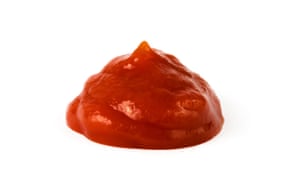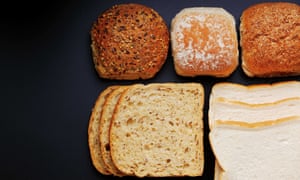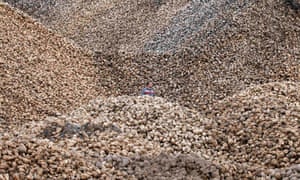Five Different ways to use Waste Products in Surprising ways
Turning tomatoes into plastics:

Ford has been leading research into 100% bio-based plastics, teaming up with Heinz ketchup. While producing ketchup Heinz generates up to 2 million tons of stems and skins every year. In collaboration with Ford's plastics research team they are striving to create plastics from plant byproducts. these plastics will not only be used in automobile design and finishing, but the Coca Cola Company, Nike, and Proctor and Gamble are also involved in the project which they plan to use the plastic material in everything from packaging to clothing making a huge dent in the impact of the petrochemical based products on the environment.
De-icing roads with cheese brine:

Typically roads are treated with rock salt which is effective yet very expensive and environmentally damaging. In Wisconsin City of Milwaukee dairy manufacturers struggle to cope with the costs of dealing with thousands of gallons of cheese brine: the salty liquid left over after making cheese. The city has been using the byproduct to help keep the roads and highways de-iced saving tens of thousands of dollars and helping the dairy company with haulage charges.
Making Beer with unsold bread:

The "Brussels Beer Project" is led by a group called The Belgium micrrobrewers who have linked up with a local sustainability group to produce "Babylone" a beer made using leftover bread that would have been thrown out.
Coffee waste into furniture:

Coffee shops offer there used grounds as fertilizer to their customers and coffee pulp from farms can be ground down to produce coffee flour. In addition to these, British design company has developed a way to create furniture made up of 60% recycled coffee grounds.
Using Sugar beets to cool refrigerators:

Anaerobic digestion is the process by which biodegradable waste materials are converted into energy or heat. Sainsbury's a large supermarket began investigating new ways in which food byproducts could be utilized, leading to the implementation of eCO2: an alternative refrigerant which is derived from waste from sugar beets. eCO2 meetss the same requirements as CO2 but is manufactured in a sustainable environmentally friendly way.

Ford has been leading research into 100% bio-based plastics, teaming up with Heinz ketchup. While producing ketchup Heinz generates up to 2 million tons of stems and skins every year. In collaboration with Ford's plastics research team they are striving to create plastics from plant byproducts. these plastics will not only be used in automobile design and finishing, but the Coca Cola Company, Nike, and Proctor and Gamble are also involved in the project which they plan to use the plastic material in everything from packaging to clothing making a huge dent in the impact of the petrochemical based products on the environment.
De-icing roads with cheese brine:

Typically roads are treated with rock salt which is effective yet very expensive and environmentally damaging. In Wisconsin City of Milwaukee dairy manufacturers struggle to cope with the costs of dealing with thousands of gallons of cheese brine: the salty liquid left over after making cheese. The city has been using the byproduct to help keep the roads and highways de-iced saving tens of thousands of dollars and helping the dairy company with haulage charges.
Making Beer with unsold bread:

The "Brussels Beer Project" is led by a group called The Belgium micrrobrewers who have linked up with a local sustainability group to produce "Babylone" a beer made using leftover bread that would have been thrown out.
Coffee waste into furniture:

Coffee shops offer there used grounds as fertilizer to their customers and coffee pulp from farms can be ground down to produce coffee flour. In addition to these, British design company has developed a way to create furniture made up of 60% recycled coffee grounds.
Using Sugar beets to cool refrigerators:

Anaerobic digestion is the process by which biodegradable waste materials are converted into energy or heat. Sainsbury's a large supermarket began investigating new ways in which food byproducts could be utilized, leading to the implementation of eCO2: an alternative refrigerant which is derived from waste from sugar beets. eCO2 meetss the same requirements as CO2 but is manufactured in a sustainable environmentally friendly way.

Comments
Post a Comment
Let your knowledge, ideas, and innovation be heard. Tell us what you think and know about this topic.